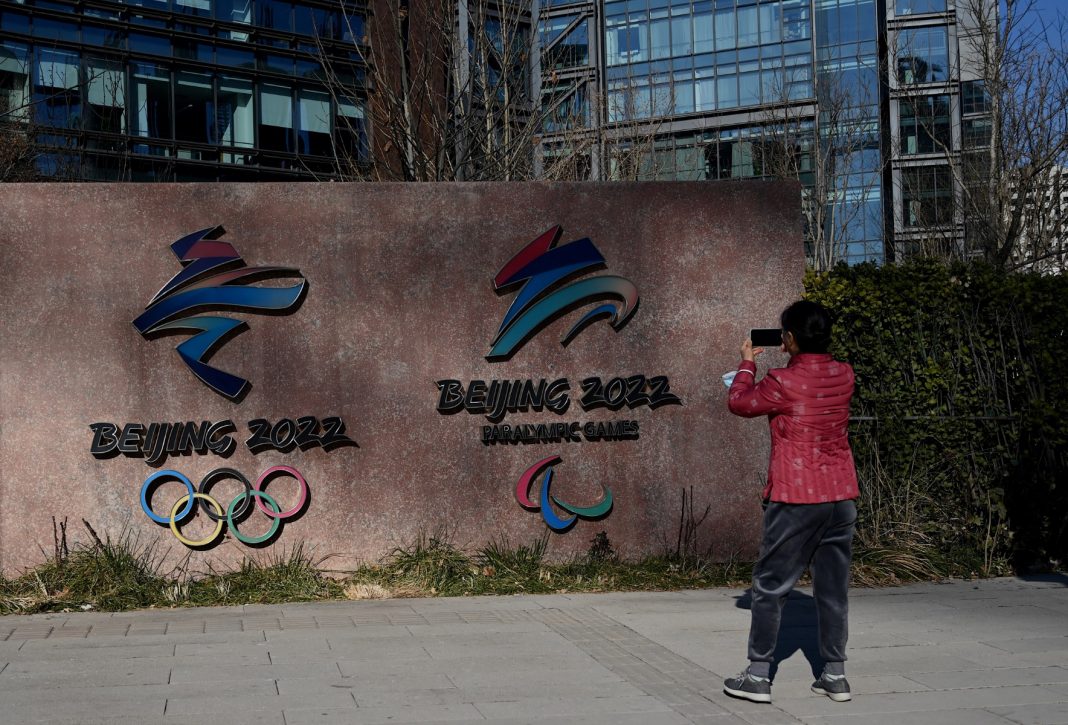Britain, Canada and Australia on Wednesday joined the United States in a diplomatic boycott of the Beijing Olympics in February, prompted by what the Western allies argue are widespread rights abuses by China.
Britain will not send ministers to the Winter Games in the Chinese capital, Prime Minister Boris Johnson told parliament, as discord over a slew of issues strains relations between Beijing and London to the most serious extent since the Tiananmen Square crackdown in 1989.
These include the persecution on pro-democracy groups in Hong Kong, a former British colony, and human rights abuses against Muslim minorities in the Xinjiang region.
As with the other boycotting countries, Johnson confirmed athletes would still attend, saying: “I do not think that sporting boycotts are sensible.”
In Ottawa, Prime Minister Justin Trudeau announced Canadian officials too would skip the Games, saying his government is “extremely concerned by the repeated human rights violations by the Chinese government”.
Earlier Wednesday, Australia announced its officials would not attend.
The countries’ decisions follow the US announcement on Monday of its diplomatic boycott, over what Washington termed China’s “genocide” of the Uyghur minority in Xinjiang and other rights abuses.
Beijing warned the United States would “pay the price”, while it accused Canberra of “political posturing and selfish games” and “blindly following” Washington.
Foreign ministry spokesman Wang Wenbin said China had never intended to invite Australian officials to the Games, adding: “Whether they come or not, nobody cares.”
– ‘Crucial step’ –
Rights groups have backed the moves, with Human Rights Watch’s China director Sophie Richardson calling it a “crucial step toward challenging the Chinese government’s crimes against humanity targeting Uyghurs and other Turkic communities”.
Campaigners say that at least one million Uyghurs and other Turkic-speaking, mostly Muslim minorities have been incarcerated in “re-education camps” in Xinjiang, where China is also accused of forcibly sterilising women and imposing forced labour.
Beijing has defended the camps as vocational training centres aimed at reducing the appeal of Islamic extremism.
International Olympic Committee president Thomas Bach insisted on Wednesday that he was staying politically neutral on the matter, while insisting the important point was “the participation of the athletes in the Olympic Games”.
– Cooling relations –
All four of the Western countries have seen relations with Beijing cool dramatically in recent years.
Britain has criticised China for its creeping authoritarianism in Hong Kong and last year angered Beijing by blocking Chinese giant Huawei’s involvement in its 5G broadband roll-out, after Washington raised spying concerns.
Canada’s relations with China meanwhile hit a low over the December 2018 arrest in Vancouver on a US warrant of Huawei executive Meng Wanzhou and Beijing’s detention of two Canadian nationals in response.
All three were released and repatriated in September.
Canberra’s ties with China have also been in freefall in recent years, with Beijing introducing a raft of punitive sanctions on Australian goods.
China has been angered at Australia’s willingness to legislate against overseas influence operations, to bar Huawei from 5G contracts and its call for an independent investigation into the origins of the coronavirus pandemic.
Australia’s recent move to equip its navy with nuclear-powered submarines under a new defence pact with Britain and the United States — widely seen as an attempt to counter Chinese influence in the Pacific region — further infuriated Beijing.
Other countries are weighing their own moves.
France, which is set to take over the European Council presidency on January 1, said Tuesday it would seek a coordinated EU response to the US decision.
The Kremlin, however, criticised the US move, saying the 2022 games should be “free of politics”.
Russian President Vladimir Putin has already accepted an invitation by Chinese leader Xi Jinping to attend.
© Agence France-Presse

